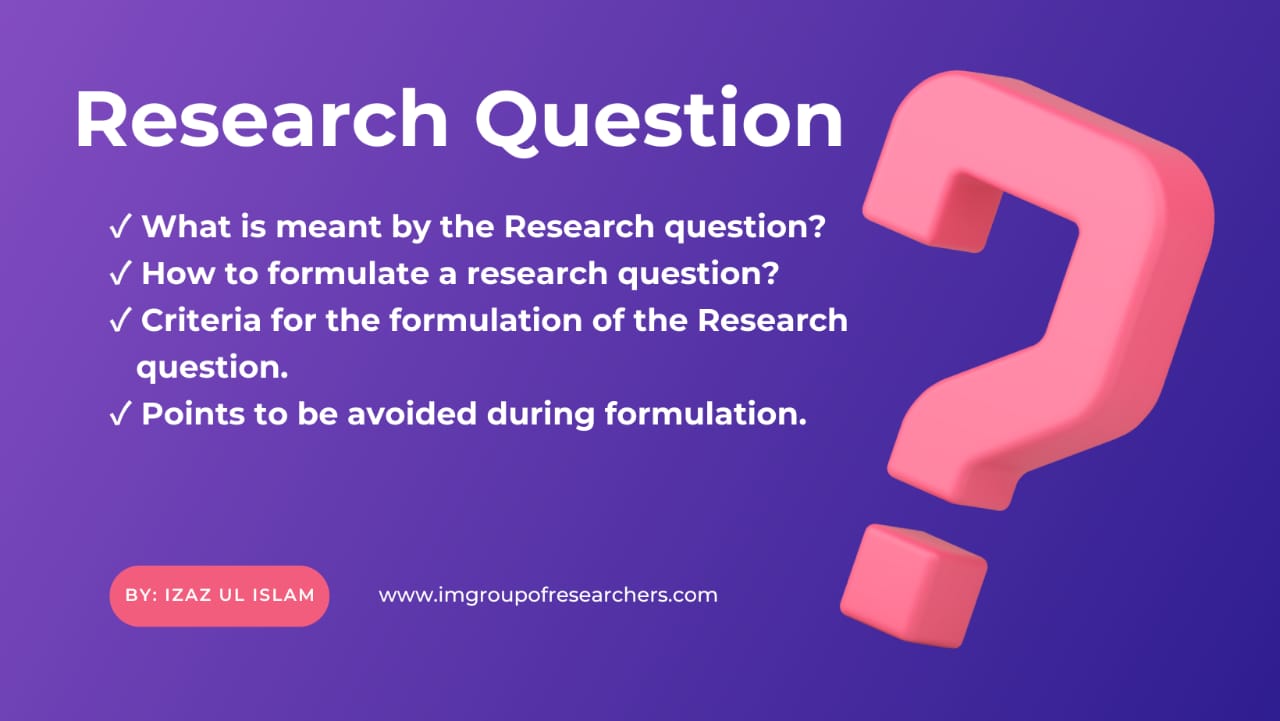Research Question
A research question is a clear, concise, and focused inquiry that guides a research study. It helps define the scope and purpose of the investigation, serving as a foundation for the research process.
Author
Izaz Ul Islam

ResearchGate: Click here to see Izaz’s profile
Main and crucial points for formulating research questions:
- Clarity: Ensure that the question is well-defined and easy to understand.
- Relevance: Address a specific issue or gap in knowledge.
- Feasibility: Consider available resources and practicality of answering the question.
- Significance: Explore topics with potential impact or importance in the field.
- Measurability: Formulate questions that can be empirically tested or investigated.
Criteria for research questions:
- Specificity: Clearly state what you want to investigate.
- Relevance: Align with the purpose and goals of the research.
- Feasibility: Be realistic about available resources and constraints.
- Clarity: Avoid ambiguity; the question should be easily understood.
- Originality: Aim for questions that contribute to existing knowledge.
Points to avoid in research questions:
- Ambiguity: Ensure clarity to prevent misinterpretation.
- Bias: Formulate questions without preconceived notions.
- Overly complex language: Keep the language simple and concise.
- Assumption of facts: Base questions on evidence rather than assumptions.
- Multiple questions in one: Keep questions focused to avoid confusion.
In summary, a well-crafted research question is clear, relevant, feasible, significant, measurable, specific, unbiased, and avoids ambiguity, complexity, assumptions, and multiple inquiries within one question.
Also read: Bridging the Gap: The Academics Journey Beyond the Ivory Tower
Follow Us on

